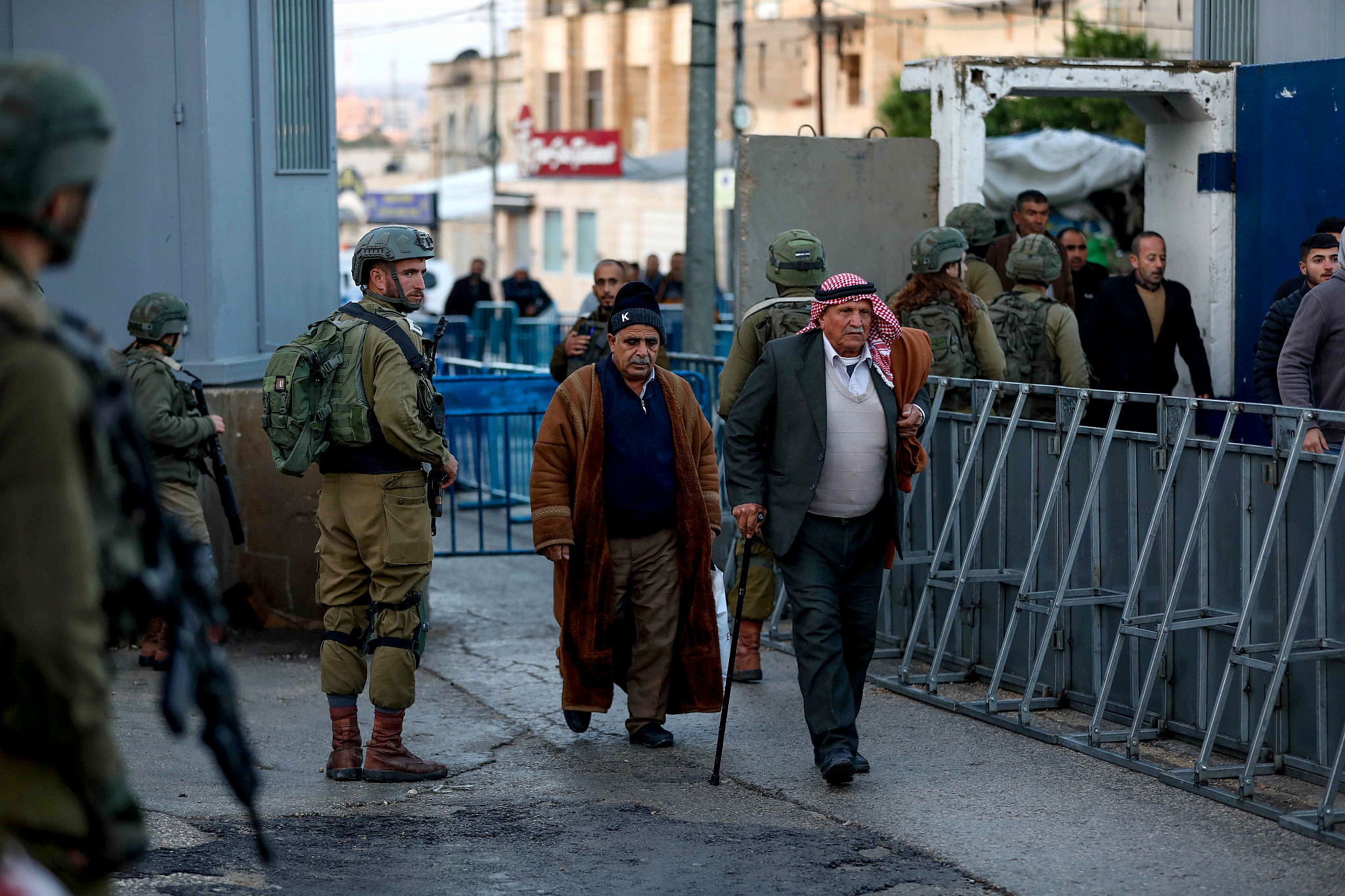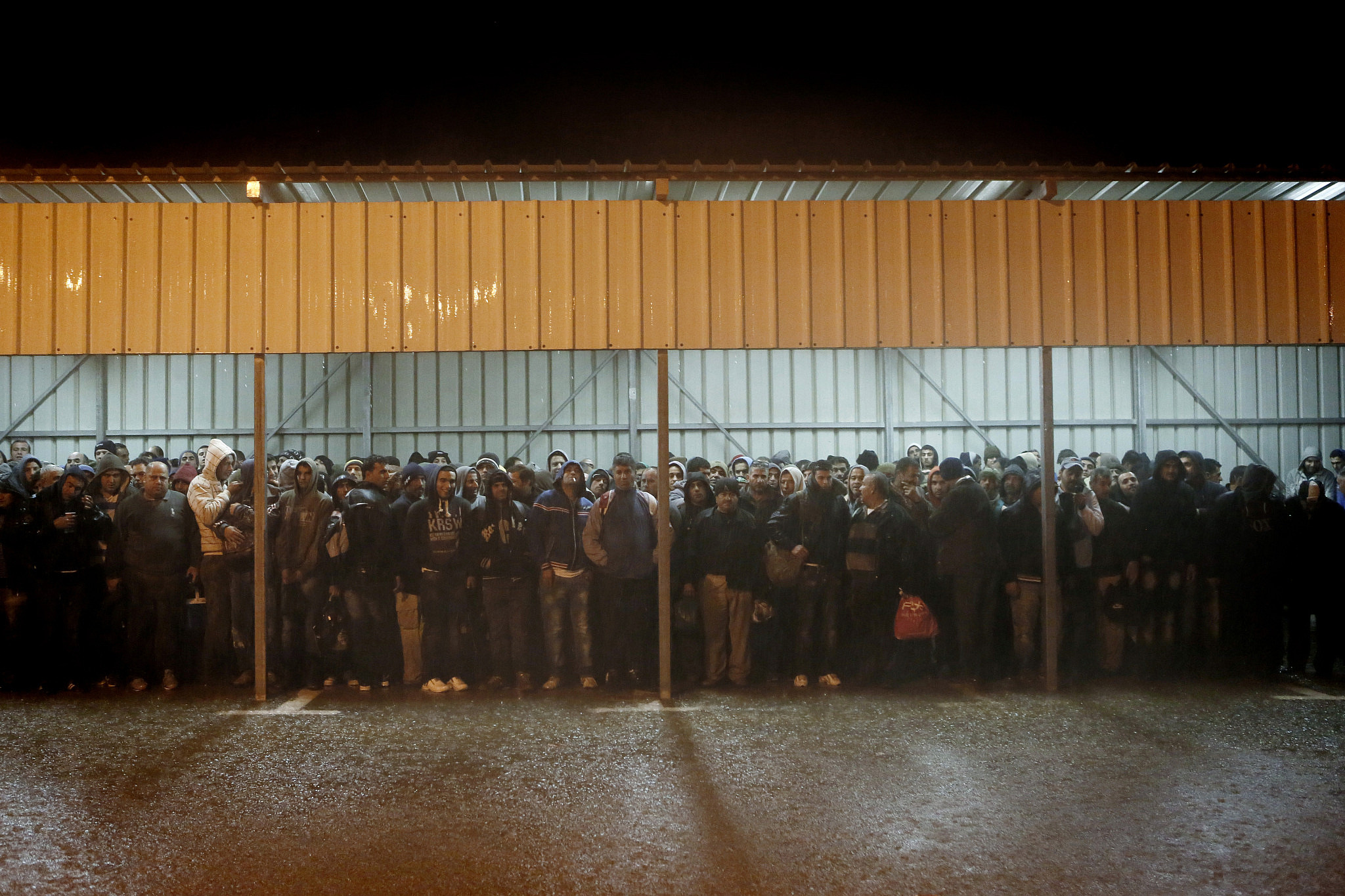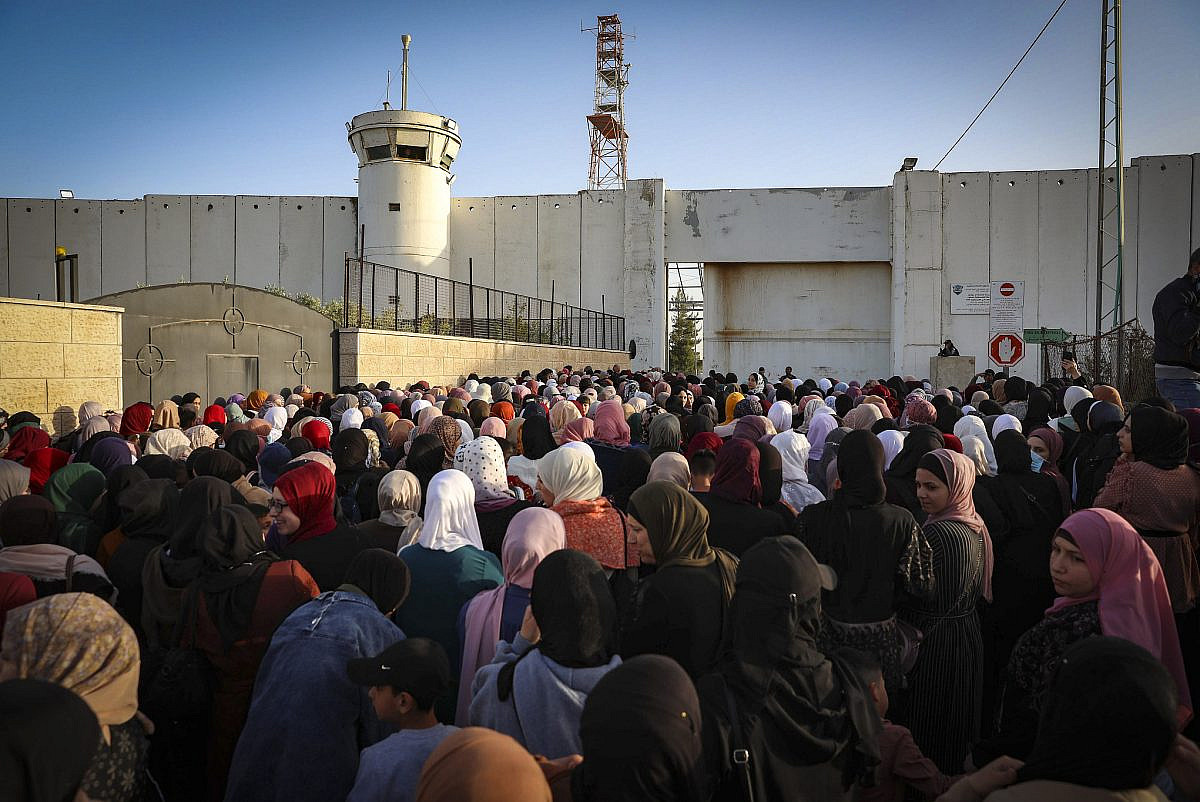As the world marks 30 years since the signing of the Oslo Accords, many have been eulogizing the agreement and declaring that there is no trace of it left. But nothing could be further from the truth: Oslo’s logic of separation and territorial division of the occupied territories into Areas A, B, and C gave birth to the Israeli permit regime, which has turned into one of the most highly developed systems of control over a civilian population anywhere in the world.
Monstrous in its pedestrian way, this system — which at various times has issued more than 120 different types of permits — is part of the toolbox of Israel’s control over the Palestinians. It has a double colonial legacy: firstly of the British Mandate and its obsession with preventing the movement of the subject population through emergency laws; and secondly of Israeli settler colonialism, which aims to deplete land of Palestinians so that it can be populated by Jews.
Moreover, the permit regime provided Israel’s security apparatus with a mechanism to rule over the everyday lives of occupied subjects. Forcing Palestinians to renew their work permits every three months, for example, offered the Israeli authorities a means to monitor, intervene, and harass them — whether deliberately or by mistake, since the bureaucracy of the occupation is so often what I call “effectively inefficient.” Indeed, the opaque nature of the bureaucracy and the constant uncertainty it created became a powerful tool to slow down Palestinian movement and, above all, to cut off Palestinians from each other.
Over the years, the logic of separation enshrined in the Oslo Accords morphed into a “security theology” that was accepted unquestioningly by large sections of the Israeli public. Checkpoints, the West Bank wall, expansive surveillance technologies, the Border Police, and separate laws based on a racial hierarchy all became normalized — first in the name of “peace” and then, when peace talks imploded, as a security necessity. It created a hard border for Palestinians without establishing their own state; for Israelis, the border remained transparent.
The logic of separation also made Jewish supremacy legitimate in practice. Every new Israeli settlement that was established — not only in the occupied West Bank, but also within the framework of “Judaizing” the Negev/Naqab and the Galilee inside the state — became another element in the system of separation, equipping these localities with a fence, a checkpoint, and a buffer zone where any intruder risks being shot by armed guards or residents.

The policy also severed Jerusalem from the cities of Bethlehem and Ramallah, isolating Jerusalem’s Palestinian population from social, familial, and business relations across the West Bank. And through the Citizenship Law and its draconian regulations, Israel has turned the permit regime into a mechanism that violates the rights of Palestinian citizens of Israel, cutting them off from those behind the wall and the checkpoints.
The architect of this multi-layered system of control was not Israel’s settler right, which — much like the Palestinians — initially viewed them as a dangerous project designed to establish a permanent border. Rather, it was the brainchild of the Israeli “peace camp,” which received the financial and diplomatic backing of much of the international community to pursue separation as a resolution to the conflict. Three decades after Oslo, and two decades since construction of the wall began, the permit regime serves as an enduring reminder of the failure of the separation paradigm to bring about a sustainable end to the conflict.
A faltering logic
The permit regime is as cruel as it is mundane. For Palestinians who were denied permits because of being “security banned” for any one of a plethora of reasons, an appalling deal was offered: either function as collaborators for the Israeli security services to receive a permit, or face the daily risk of arrest or imprisonment for simply trying to make a living or receive adequate medical treatment in Israel. We don’t know exactly how many collaborators were recruited using this method, but there’s little doubt that this deal has been offered to tens of thousands of people.
The impact this recruitment practice has had on Palestinian society is profound. It created a lack of trust, even within families and communities, between permit recipients and those banned from getting permits for security reasons. Receipt of a permit often came with a heavy personal price tag: the unshakable suspicion that whoever obtained it was working for Israel. The most serious suspicions were directed toward representatives of the Palestinian Authority, large-scale capitalists, and members of civil society organizations. The ability to establish social solidarity and trust was severely depleted.

Yet the logic underpinning Israel’s security theology began to falter over the years. Gaps in the wall and fence, or areas where it was not yet completed, were deliberately kept open by security forces to allow for an influx of permit-less workers. Corruption and the forging of permits by officials or entrepreneurs were handled with a light hand, with low criminal offenses and no security-related charges brought against those responsible, even when they earned millions from many thousands of permits — which should, according to the logic of separation, have harmed the country’s security.
Just this year, Israel agreed to allow all Palestinians with American citizenship — including residents of the West Bank and Gaza Strip — to enter Israel, stay for up to 90 days, and even use Ben-Gurion Airport. The Shin Bet initially objected, but as soon as the government caught sight of the prize of a visa waiver for the United States, the security theology once again cowered to more important goals.
To continue justifying this bureaucratic system, which has grown exponentially, the permit regime’s proponents have increasingly turned to nationalist and openly racist arguments instead. Much of Jewish-Israeli society has adopted the unpolished rhetoric now expounded by the likes of Itamar Ben Gvir and Bezalel Smotrich, whose ultimate objective — including through the judicial overhaul — is annexation, the expulsion of Palestinians, and the establishment of permanent authoritarian rule. In this way, the wall and the permit regime became a weapon in the hands of the settler leadership, with the more liberal public subscribing to their dictates.
As more and more Israelis begin to join the dots between the system that denies Palestinians their freedom and the far right’s attempt to limit democracy for Israeli Jews, we should recognize that the wall and the permit regime did not bring security, only control. And as such, our visions for a future of real democracy and equality must be based on tearing them down.
Most read on +972
This will require courage and a shift in consciousness from those who have internalized the idea that only separation will bring peace, as well as solutions for the deep fears held by both Israelis and Palestinians. The responsibility for this does not fall only on the Israeli and Palestinian leaderships, given the extensive array of international actors that established, financed, maintained, and supported the permit and separation regime. But the duty of sobering up to reality applies first and foremost to Israeli society.
The judicial overhaul presents a tremendous risk, but also a great opportunity to see the idiocy and cruelty of the systems that Israel imposes on Palestinians, and the way in which they strengthen the power of the authoritarian, Kahanist forces in Israeli politics. The permit regime — Oslo’s enduring legacy — must be abolished.
A version of this article was first published in Hebrew on Local Call. Read it here.




